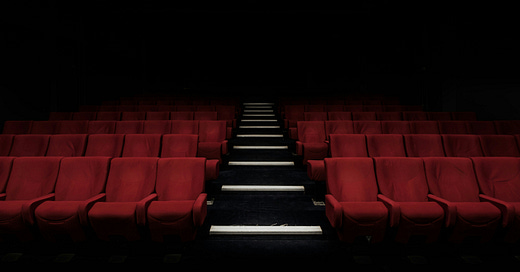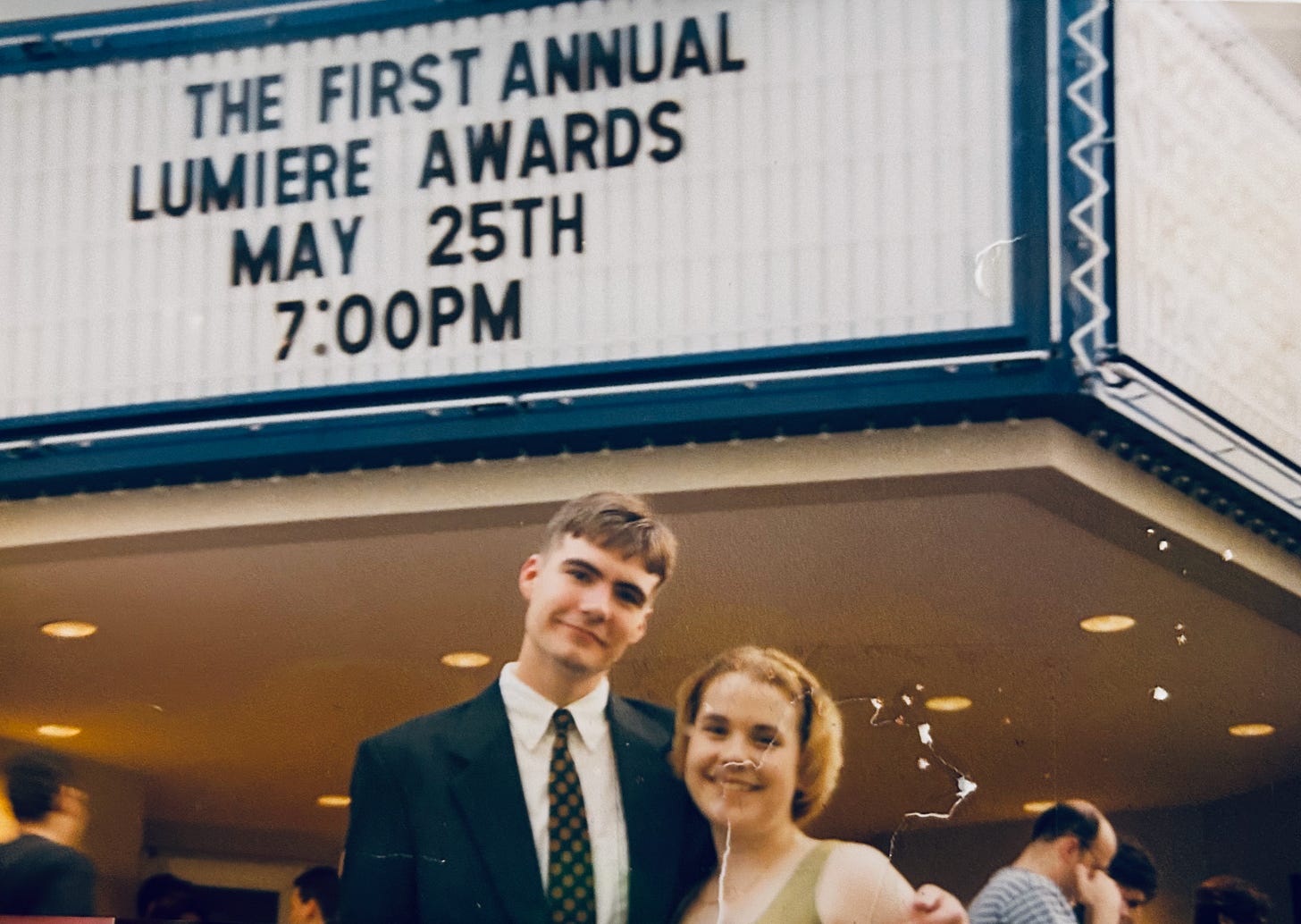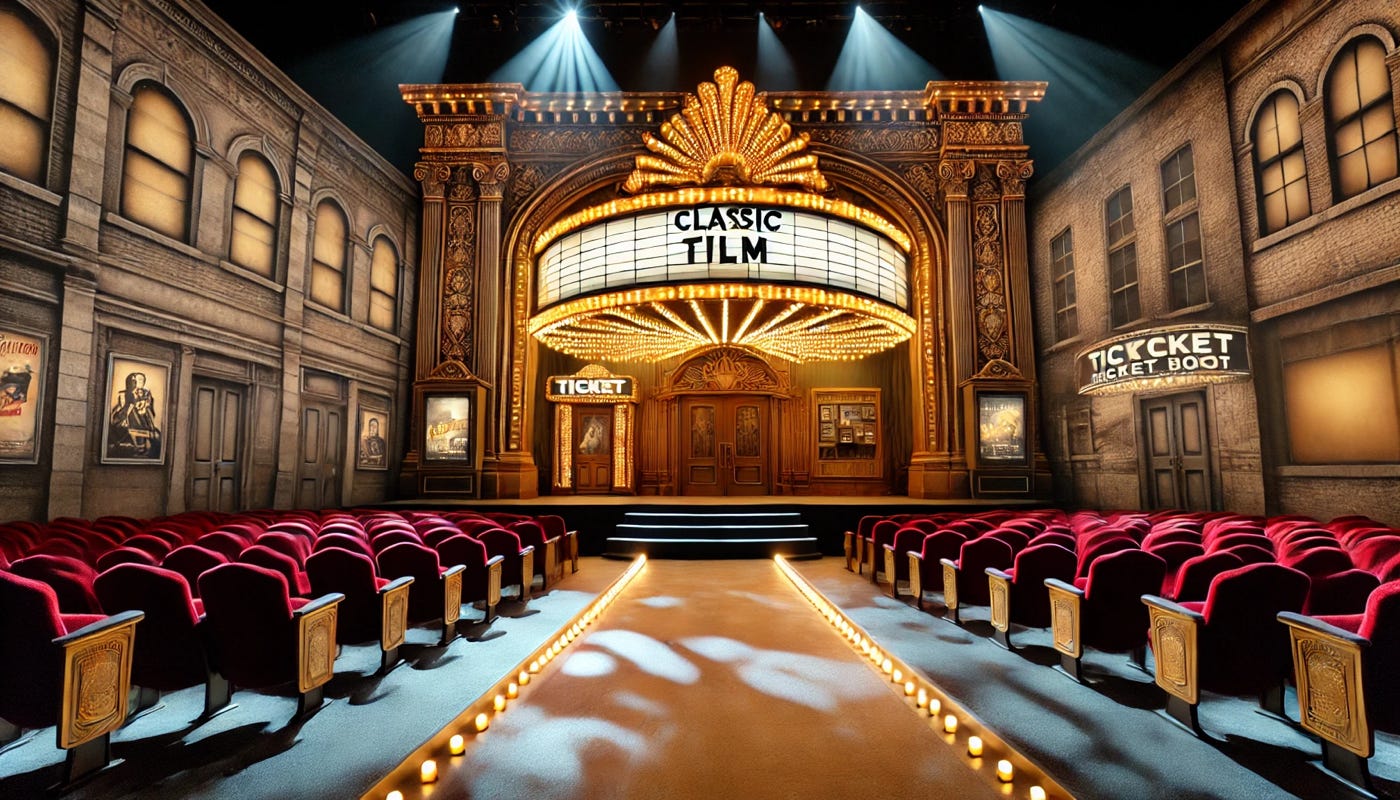I used to love award shows. So much so that when I was in college at the University of North Carolina School of the Arts (also the alma mater of Paul Tazewell who made Oscar history as the first black man to win Best Costume Design for WICKED), I created and produced an award show called the Lumiere Awards. It was only for my class of about 70 film students and there were enough categories for just about everyone to win something. The purpose wasn’t to compete, it was to make space for us to celebrate our work. The show did not continue after I graduated, it wasn’t meant to, it was just for my class. I also produced The 2nd Annual Streamy Awards, which streamed live online from the Orpheum Theatre in Los Angeles in 2010. When I took the job (I found on Craigslist), the show wasn’t supposed to be live (I had never produced any live content). It was a last minute switch, which resulted in many technical issues (though not as bad as Hulu ending the Oscars broadcast early). Someone streaked across the stage and sexist and unfunny jokes by host Paul Sheer did not go over well. Despite all that, the Streamy Awards later partnered with Dick Clark Productions, rebranded, and ran for a decade.
I’ve never written a take on the Oscars. Mainly because enough people already do, but mostly because producing just that one year of the Streamy Awards taught me how incredibly difficult it is to produce a live awards show. Much like a film, regardless of how the final product turns out, the work that goes on behind-the-scenes is incredibly hard. But I feel compelled to share my thoughts this year because I fear we’ve lost the plot, which as producers, is the one thing we’re not supposed to do.
There was much to criticize about the 2025 Oscars. The cringe-worthy moments seemed to never end from Kiernan Culkin rambling on about getting his wife pregnant, to Adrian Brody throwing his gum at his girlfriend (who is Harvey Weinstein’s ex-wife) and giving the longest (and rudest) speech in Oscar history, to Camille singing El Mal when she won Best Song for EMILA PEREZ, and the use of Mozart’s haunting Lacrimosa as the song for the In Memoriam segment when Brandi Carlile was sitting in the audience perfect for the occasion. We cry about young people caring more about YouTube and TikTok than movies, but served them up an outdated host in Conan O’Brien who couldn’t make the Adam Sandler bit as funny as Nikki Glasser did at the Golden Globes, then make everyone sit through a Quincy Jones tribute with Queen Latifah singing THE WIZ with Whoopi Goldberg and Oprah Winfrey presenting. At this moment in the show, I rolled my eyes like I was Gen Z who doesn’t care about any of these performers, and walked away to get a snack and another glass of wine. But I’ve been watching the Oscars for over 30 years and know that every year there is a hit and miss of elements, some of which are in the show’s control and others that are not. Where my real criticism falls is in the show’s lack of appreciation for movie theaters, a silence that was deafening.
An hour into the Oscars, I texted Barbara Twist (the Executive Director of Film Festival Alliance) asking, “How long is it going to take for someone to say something about supporting theaters?” She responded with, “Only if Sean Baker wins lol.” But in his first win for Best Original Screenplay, he dedicated the award to the sex workers who shared their stories with him and made his film possible, which was appropriate for the moment. When his speech ended, I texted Barbara, “nope” and she replied, “damn.”
When Lol Crawley won Best Cinematography for THE BRUTALIST, the film ‘nobody asked for’ according to its director Brady Corbet, I thought maybe this would be the moment someone will thank movie theaters. Not only has Lol dedicated most of his career to independent film, but THE BRUTALIST was shot on 35mm, and has an actual intermission to accommodate its 214 minute runtime, a huge risk for movie theaters to take on. Nope. Even Quentin Tarantino, who owns two movie theaters in Los Angeles, said nothing about the importance of supporting theaters when he presented.
Luckily, Sean Baker won again and used his Best Director speech to advocate for theaters saying, “We are all here tonight because we love movies. Where did we fall in love with movies? At the movie theater. In a time in which our world can feel very divided, this is more important than ever: It’s a communal experience you simply don’t get at home.” Sean went on to point out that during the pandemic, we lost nearly 1,000 movie screens in the United States and we continue to lose them regularly. After his speech, my phone dinged with Barbara texting, “Thank you Sean!!!!”
But what if Sean hadn’t won? If not for his speech, the only other mention of movie theaters would have been the mock-commercial for CinemaStreams that felt like it was made to poke fun at movie theaters. Or was it poking at streamers? Or at young people? I honestly have no idea, but it was far off the mark in any of those scenarios. And why was Sean Baker, who made his film for a mere $6million, the only filmmaker who cared enough to spotlight movie theaters? Why couldn’t the sound designers who won for DUNE: PART 2 tell audiences their work was meant to be heard in Dolby and not on your cheap sound bar from Best Buy? Why didn’t the production designer from WICKED say they spent 15 weeks building Emerald City so you could feel like you were transported into Oz, not Peacock. I get it, you only have 45 seconds plus some grace to give your speech (unless you are Adrien Brody who took more than 5 minutes), but instead of rattling off the names of your “team” who no one watching at home has ever heard of, why not take this moment to implore audiences to go back to the theaters for more than just Marvel? Tell them why it matters. Everyone (other than Sean) got up on stage acting as if our life’s work doesn’t depend on it.
Many distributors were thanked Sunday night, but distributors are not exhibitors (if you don’t know the difference read Why Aren’t We Talking About Exhibition by Karin Chien). Brick- and-mortar theaters (exhibitors) stood by filmmakers through the pandemic when all seemed lost, as well as the strikes of 2023, which shut the industry down just as we had gotten back up again. And they continue to fight for their existence, for our existence, despite the rollback of the Paramount Decree in 2020 that had been in effect since the late 1940s to kept vertical integration (where a company owns its supply chain from production to distribution to exhibition) at bay. And film festivals, who also act as exhibitors, have done the same year after year championing cinema and the theater-going experience. Yet these exhibitors were made invisible on what is referred to as “the biggest night in Hollywood.”
What makes no sense in excluding theaters (purposely or unintentional) from the Oscars show is that in order to be eligible for awards, the Academy requires films to have a theatrical run “for at least seven consecutive days in the same commercial motion picture theater, during which period screenings must occur at least three times daily, with at least one screening beginning between 6 p.m. and 10 p.m. daily, advertised and exploited during their theatrical qualifying run in a manner normal and customary to theatrical feature distribution practices.” These requirements are in place even for films such as NO OTHER LAND, which took home the Best Documentary statue, but does not have a U.S. distributor, putting the heavy and expensive qualifying burden on the filmmakers (full eligibility rules can be found HERE).
While watching the almost 4 hour long show, I thought about ways in which the producers of the Oscars could have spotlighted movie theaters…
The set could have been designed in their honor. Something like this bad version that ChapGPT made for me off of one prompt…
Much like bringing the Los Angeles firefighters on stage (but without the crass jokes), they could have partnered with Art House Convergence and brought the owners of the longest running independent theaters on stage for a round of applause, thanking them for their unwavering support of cinema.
Presenters could have spoken about their most memorable theater-going experience. Mine was seeing DANCER IN THE DARK in the Palais theater at the Cannes Film Festival in 2000 while I was still in film school.
Rather than showing old headshots of actors, they could have highlighted the film festivals that discovered talent such as Sean Baker, Brady Corbet, Walter Salles, Felicity Jones, Timothée Chalamet, Guy Pearce, and so many more by showing photos from their first festival premiere.
They could have partnered with the American Theatre Organ Society and figured out a way to get an old theater organ on stage for a performance, something for the boomers+ viewers.
So many great ideas could be born from a room full of people more creative than me brainstorming ways the Oscars could have celebrated theaters on Sunday night.
But if filmmakers (every craftsperson involved in making a movie) are not going to start thanking theaters in award speeches then frankly, I don’t want to hear it anymore. I don’t want to hear filmmakers dramatically say that their movie MUST be seen in a theater. That they don’t want to sell to a streamer because they just HAVE to have the theatrical experience. I don't want to be asked to cut my fee so more money can “go on the screen” when the screen is in someone’s living room or on their iPhone because we’ve let movie theaters die. And if the Academy isn’t going to vocalize the importance of the theaters during their biggest night, then they need to drop the theatrical requirements to qualify. It’s hypocritical. I understand that the Academy needs to walk a fine line, that streamers are part of the ecosystem too, and many of them, like Apple, Amazon, and Netflix are corporate sponsors of the Academy’s museum, but we all have to learn how to play in the same sandbox and acknowledge each other’s contributions. None of us exist without the other.
I can’t imagine what it feels like to wake up the day after winning an Oscar, the exhilaration one must feel. And I also can’t imagine waking up the day after the Oscars as a theater owner feeling entirely erased from an industry that was built on your back. Producers always say we have the most thankless job, but I think we’ve passed that torch.







I nominate Rebecca Green to produce the Oscars 2026. She's right.
you are so right!! It's part of the ecosystem. I think I didn't know the different between distributors and exhibitors until I got my first film made and sold. It's ignorance and I think televised award shows for films should 100% be the place to educate the importance of them!